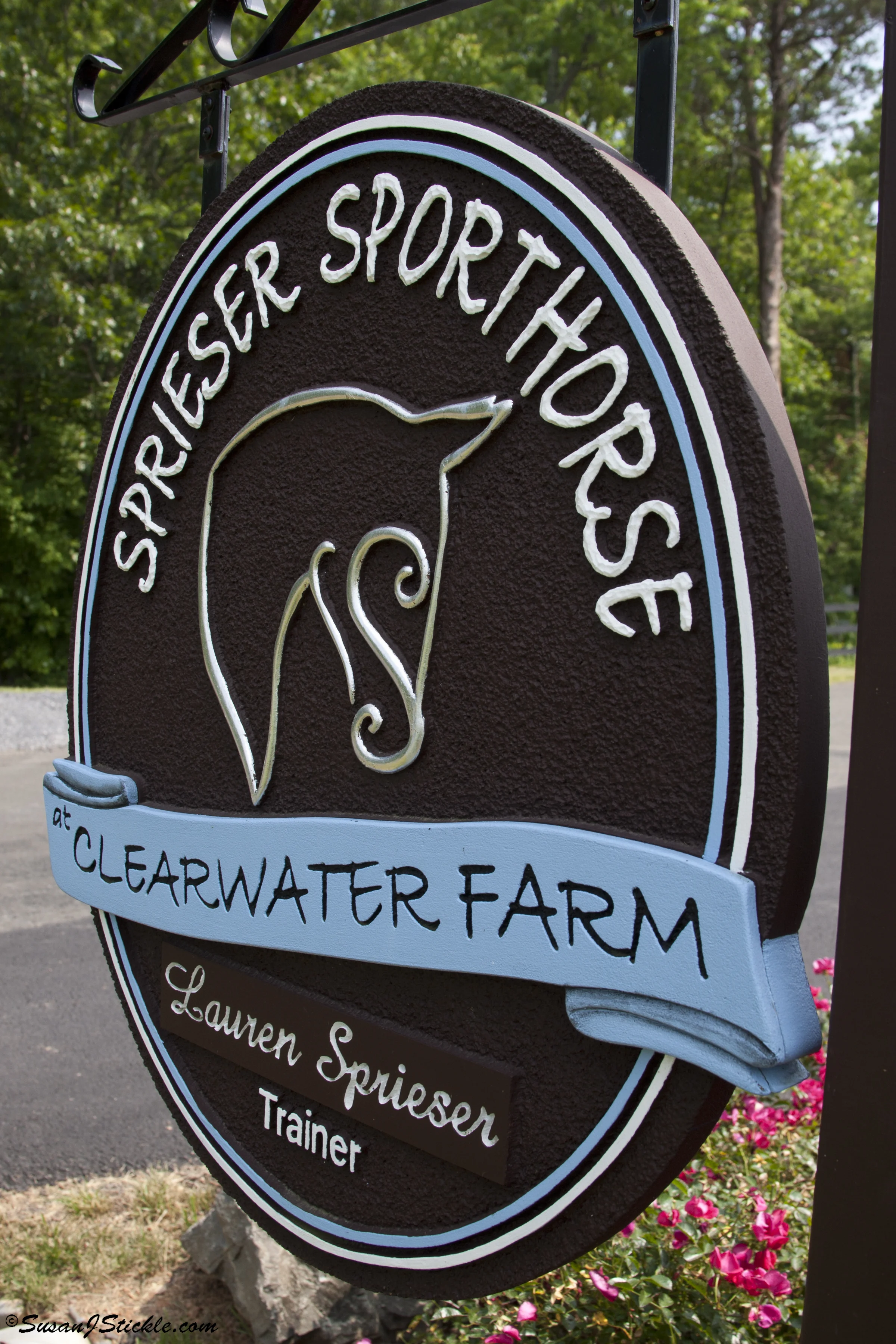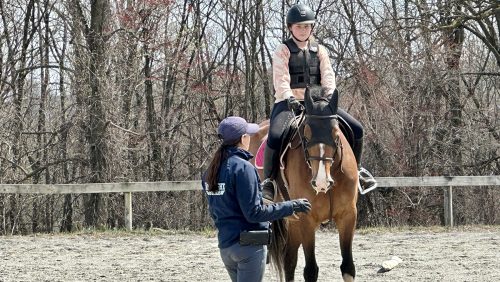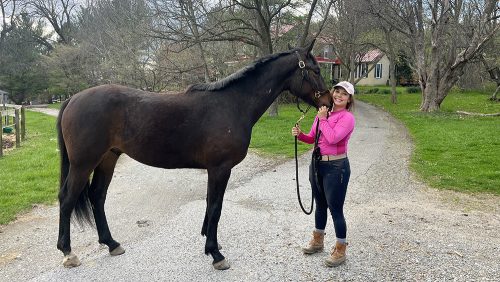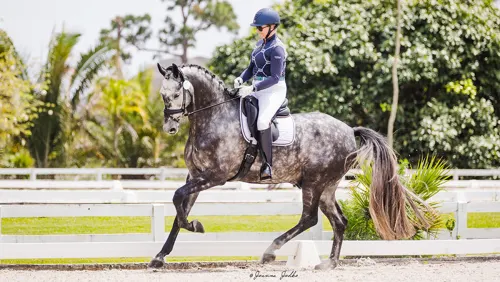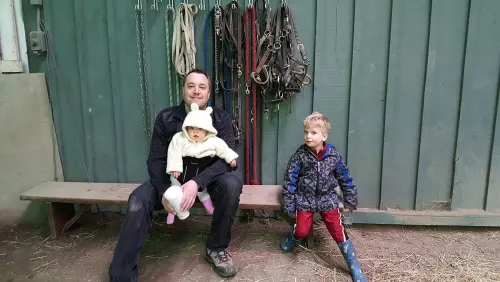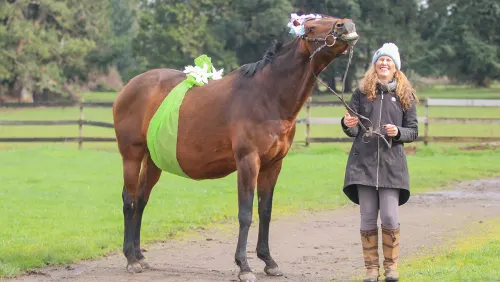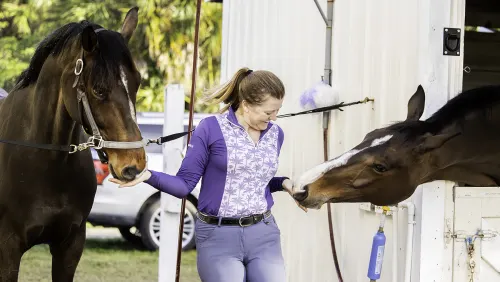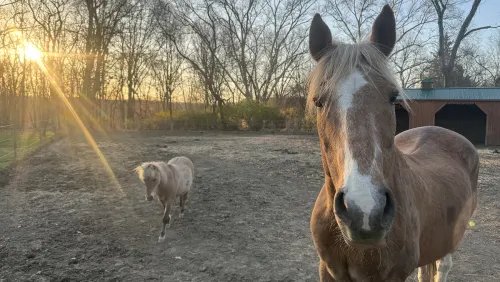I wake up every day waiting for someone to tell me it’s all been a dream. There’s no way that I got so lucky as to be able to work doing something I just freaking love. But it’s not luck anymore—it’s a business, and my business, like any other, is a result of good planning, good financial sense and a good product.
I often hear about how expensive it is to ride dressage, and that’s true. But at least on my part, I can tell you that the prices I charge were not picked out of thin air. They are the result of careful calculations that determined what I needed to bring in to offset my expenses. Here’s a little taste of what that math is all about.
First, let’s talk running-the-farm expenses. I write a BIG rent check every month for my farm. I write it happily (or, well, at least not UNhappily) because my farm is gorgeous, and it has one of, if not the, area’s finest indoor arenas, big stalls, oodles of turnout, everything a girl could want. I have 12 stalls, which means that when full, I go through about 300 bales of hay every three-or-so months. I can store that many with room to spare, so I get my hay by the truckload, which keeps the cost down, but it’s not insubstantial.
I pay for bedding and grain. I pay the electric and security bills, and I buy propane to heat the place and run the generator in inclement weather which, in Virginia, in the spring and fall, happens a lot. I buy brooms, double-ended snaps, laundry detergent. I pay for insurance. I pay for fuel that goes in the trucks, and I pay for the trailers’ annual inspections. And I pay people—my fabulous working students, and oh, p.s., I’m in the market for a working student, hint hint—to clean stalls, scrub water buckets and feed horses. And that’s all before anyone sets foot in the stirrup.
Oddly enough, I make very little money on the horses in training. See the above for all the reasons why—they cost me money to keep, whereas my trailer-in lessons? My only cost from them is the cost of turning on the lights. I broke it down once—I make about $4/hour on a horse in full-training, as opposed to what trailer-in lessons bring in. Yikes.
Let’s consider some other costs—the cost of getting me to where I am now in my own education, the cost of teaching me how to be a good teacher. I’ve been riding since I was 11. That’s 16 years of regular lessons, and a good chunk of that time, while I was a teenager in high school and in college, was in full training. I got to be a good rider because I rode good horses, and thank GOD for my family who supported me back then, because as we all know, good horses of any discipline don’t come cheap.
Today, I fight to get the time to take 6-8 lessons a month, spread out between my three horses. I have to get to those lessons, which involves driving a truck that gets about the same gas mileage as a tank 300 miles EACH WAY. Yes, I chose a trainer that lives 5 1/2 hours away, but that’s because I’m riding at the elite level, and my coach and I have a plan that works, and that’s the way that goes. The scary cost is the time—for every day I’m up at Michael’s, I’m NOT at home teaching lessons.
ADVERTISEMENT
A little calculation I did today? The cost to me, April to December, of two weekends of lessons, twice a month, per horse, plus stabling, fuel AND lost income? More than $32,000. Hello.
Why is this relevant? Because my continuing education makes me a better teacher, and not just at the high performance levels. I learn things all the time in my lessons where I think to myself, “Hey, you know who needs to hear this? My training level amateur, Suzie Q, because she’s struggling with the same thing.” And it may seem silly, but if I’m a better, more prominent rider, when I go to help Suzie Q with selling her horse, I can advertise it as having been trained by me, Olympian or Long List rider or World Cup finalist or whatever, which adds value to that horse. My being the best rider and trainer I can be isn’t just good for me—it’s good for my clients.
Anyone who thinks that a good way to get rich quick is to be a dressage trainer is mistaken. It’s hard selling dressage horses because they take so much longer than any other discipline to develop. It’s hard marketing dressage to husbands because they can’t necessarily see the progress that’s being made, whereas with jumping or racehorses the results of good training are clear for the layman.
And it takes years, decades even, of regular training to become the truly competent and well-seasoned Grand Prix professional we all want to learn from. It’s just not so easy to do it right, really right, on a shoestring. It’s like paying a graduate school’s tuition, except you have to do it every year; we’re never done learning, any of us. And if I wasn’t head-over-heels in love with my job, with my farm, with my incredible clients and their amazing horses, I wouldn’t do it. I know so many other professionals who feel the same.
It’s a labor of love, emphasis on labor. And like so many good things, we get what we pay for.

